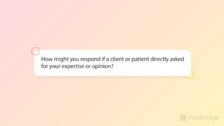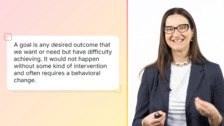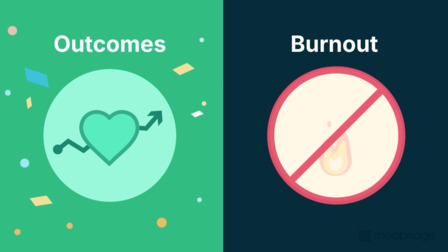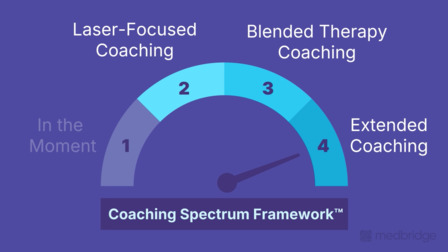Exploration in Action: Guiding Clients Toward Solutions
Presented by Hélène Thériault
12-Month Subscription
Unlimited access to:
- Thousands of CE Courses
- Patient Education
- Home Exercise Program
- And more
Healthcare professionals are often looked to for answers—but what if the most sustainable solutions come from the clients themselves? Exploration in Action: Guiding Clients Toward Solutions is course 5 of 8 in the Dive Into a Coach Approach® 1.0 | Core Fundamentals course series. This course empowers clinicians to step back from prescribing and instead support clients in uncovering their own pathways forward. Drawing from self-determination theory, adult learning theory, and the Stages of Change model, this course introduces evidence-based coaching techniques that prioritize client autonomy, build self-efficacy, and foster deeper motivation. Providers will learn how to balance their clinical expertise with a coaching mindset, observe obstacles that may derail progress, and use tools like the DIVE IN Goals™ framework to anchor goal setting in values and personal meaning. This course equips athletic trainers, occupational therapists, physical therapists, and speech-language pathologists to apply coaching strategies in a variety of settings—including hospitals, outpatient care, and telehealth—to enhance outcomes and client engagement.
Learning Objectives
- List three key theories that explain why clinicians should resist prescribing solutions
- Build three strategies that promote client-led problem-solving instead of prescribing solutions
- Recognize four criteria for when to share expertise while maintaining client autonomy
- Name four key criteria for when to observe obstacles in a coaching conversation
- List nine coaching techniques
- Identify four ways to integrate the DIVE IN Goals™ in practice
- Select which method is most suitable for your client population
- Express how the DIVE IN Goals™ support the coaching framework
Meet your instructor

Hélène Thériault
Hélène brings more than two decades of experience in the medical field to her role as a master certified coach (MCC). Witnessing the toll of burnout firsthand, she discovered the power of the Coach Approach in her practice, benefiting both her patients’ recovery and her own well-being. Drawing on her expertise in…
Chapters & learning objectives

1. Empowering Clients: The Case for Resisting Prescribing Solutions
This chapter explores why shifting from telling to asking enhances client motivation, retention, and follow-through. Through key behavior change theories, learners examine the risks of overprescribing and practice strategies like questioning, reflecting, and pausing to empower clients to create their own solutions.

2. Balancing Expertise and Observing Obstacles: Supporting Client Autonomy
Here, clinicians learn when and how to offer insights while still honoring client ownership in the process. The chapter introduces criteria for responsibly sharing expertise, as well as ways to identify and name obstacles—such as emotional barriers, past challenges, or external limitations—without taking over the conversation.

3. Exploring DIVE IN Goals™: A Practical Tool for Client Motivation
This chapter presents the DIVE IN Goals™ framework as a structured, client-led method for setting meaningful goals. Learners explore how this tool supports coaching conversations by aligning goals with values, anticipating challenges, and building accountability. Practical examples and applications help providers tailor their use across settings and populations.
More courses in this series

Coaching Fundamentals in Healthcare
Hélène Thériault

Building Clarity: Defining the Coaching Process
Hélène Thériault

Listening and Mindset: Applying the Foundations
Hélène Thériault

Diving Deeper: Understanding the Client’s Perspective
Hélène Thériault

Exploration in Action: Guiding Clients Toward Solutions
Hélène Thériault

Summing Up and Taking Action
Hélène Thériault

Bringing It All Together: Coaching Framework and Application
Hélène Thériault

Laser-Focused Coaching
Hélène Thériault

Using a Coach Approach With Remote Monitoring
Hélène Thériault